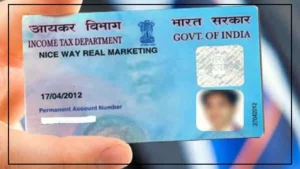The National Savings Scheme (NSS) is a secure investment option offering attractive returns, with various schemes tailored to specific needs.
For instance, the Monthly Income Account is ideal for those seeking regular income post-retirement.
While investing through an agent is a common practice, it’s essential to take certain precautions to ensure your investment is handled properly.
Exercise Caution with Agents
Agents can be helpful in guiding you through the investment process, but it’s crucial not to rely solely on their advice.
Remember, agents earn a commission for investments made through them, which might influence their recommendations.
If you have any doubts about the information provided by the agent, it’s wise to conduct your own research. If independent research isn’t feasible, consider consulting a financial advisor.
While they charge a fee, they don’t receive commissions from any scheme, increasing the likelihood of receiving unbiased advice.
Opening an NSS Account Online
You can bypass an agent altogether by opening an NSS account online. This can be done at any post office or bank branch.
Once your account is set up, you can deposit funds directly. Some schemes, like e-Kisan Vikas Patra, Public Provident Fund, and Sukanya Samriddhi Account, even offer online deposit facilities.
Key Considerations When Using an Agent
If you prefer to open an NSS account through an agent, keep the following tips in mind:
- Verify the Agent’s Identity: Always check the credentials of the agent before proceeding.
- Fill Out the Application Form Yourself: While you can seek the agent’s help, ensure that you personally fill out the application form.
- Request a Deposit Receipt: If you deposit money through an agent, always ask for a receipt. This provides proof of the transaction.
- Obtain Your Passbook Promptly: After making a deposit, request your passbook from the agent within 10 minutes.
- Regularly Monitor Your Passbook Entries: Periodically review your passbook to confirm that the agent is depositing your money on time.
For deposits exceeding Rs 10,000, it’s advisable to use an account payee cheque for added security.
























